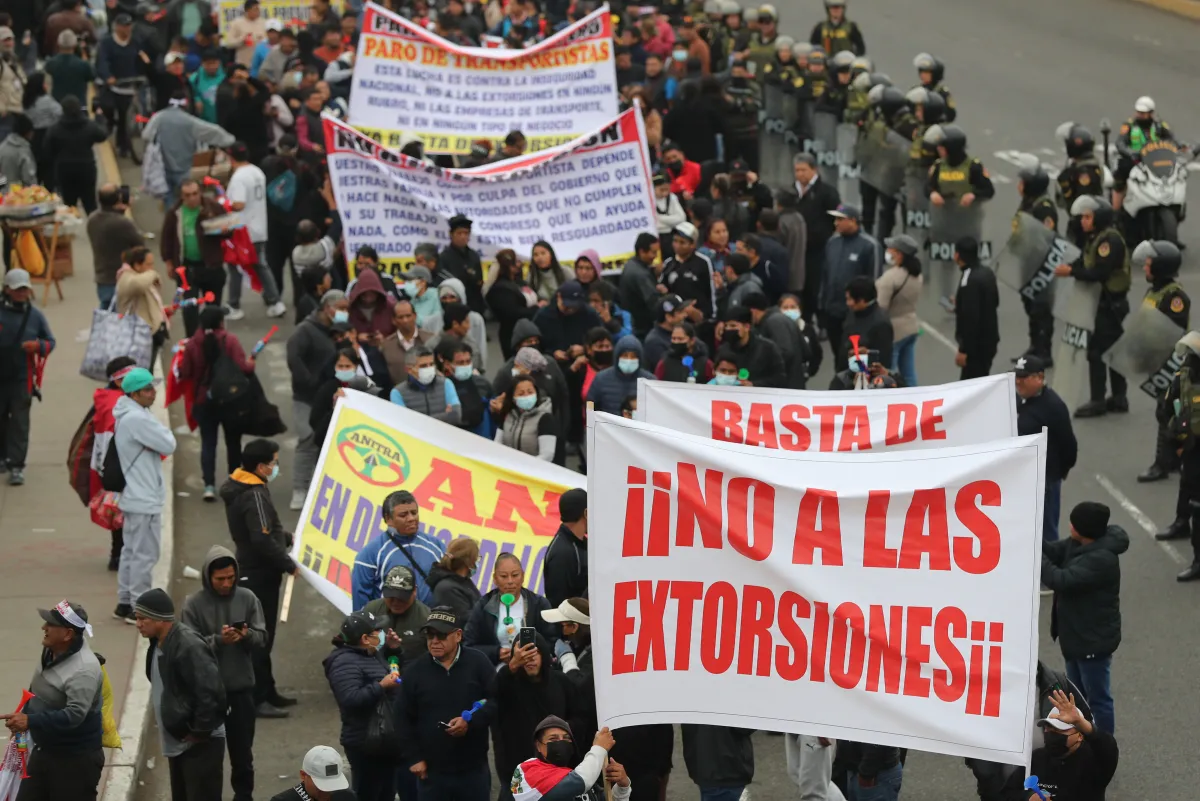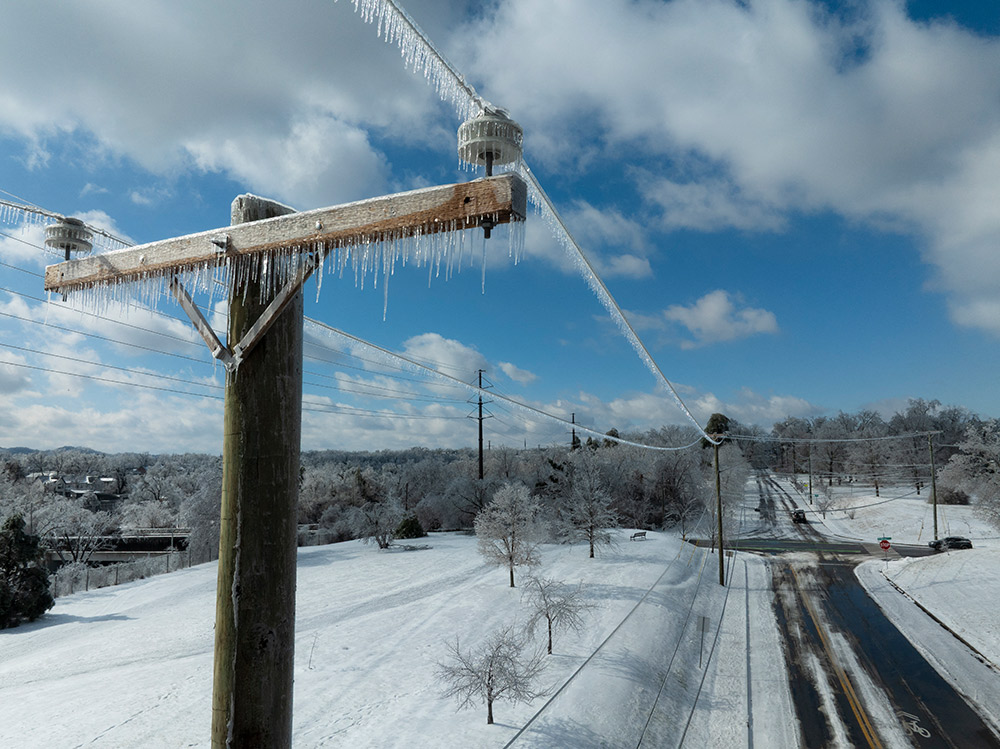International
The Government of Peru proposes to qualify extortion, kidnapping and hitman as terrorism

The Government of Peru presented this Thursday a bill that qualifies as “urban terrorism” the crimes of extortion, kidnapping and hitman, in response to the wale of crime denounced by carriers and business unions.
The bill includes modifying several articles of the Criminal Code “in order to strengthen actions to combat citizen insecurity,” for which it proposes a tougher sentence, which includes life imprisonment if whoever commits this type of crime belongs to the Armed Forces or the National Police.
The Peruvian Executive announced that it was going to send this project to the Legislature a week ago, when the transport union made a strike in Lima to protest against the wave of extortion.
For its part, the business union affirmed that organized crime has formed a “parallel government” that is “winning the battle” against the State and destroying the country.
The legislative document, signed by President Dina Boluarte, will have to be debated and voted on in Parliament.
‘Urban terrorism’
He defines urban terrorism as the conduct consisting of “acts that generate terror or anxiety in the population or in a sector of it” through the crimes of hitman, conspiracy, offering for hitman and extortion.
For this, article 315-C is incorporated into the Criminal Code, proposing that the penalty of imprisonment applied to said offense should not be less than 30 years.
It will be life imprisonment, when those who commit it belong to the Armed Forces or Police, “weapons, war material or explosives are used, this type of weapon owned by the Armed Forces or the Police is used and those who use minors or unimputable people to commit the crimes.”
It proposes to modify article 200 of the Criminal Code so that anyone who commits extortion receives a prison sentence of between 15 and 20 years.
“Anyone who, through violence or threat, forces a person or a public or private institution to grant the agent or a third party, an undue economic advantage or other advantage of any other nature, will be punished with a prison sentence of not less than fifteen years or more than twenty years,” the document specifies.
Members of the Armed Forces and the Police
As for the hitman, it establishes that “the one who kills another by order, commission, or agreement with the purpose of obtaining for himself or for another economic benefit or of any other nature will be repressed with a penalty of imprisonment of not less than 30 years and disqualification.”
In the same way, it will be life imprisonment if “a minor or another unimpeachable person is used,” he orders a criminal organization, weapons of war are used, when the victims are two or more people or two or more people intervene in the execution.
Finally, the legislative initiative includes a final complementary provision, which establishes that members of the Armed Forces and the Police who are denounced during states of emergency for acts carried out in fulfillment of their functions “will be investigated and, if applicable, prosecuted as provided for in article 173 of the Constitution.”
This implies that they will submit to the jurisprudential jurisdictions corresponding to the Police and the Military Justice.
International
Winter Storm Fern Leaves 30 Dead and Over One Million Without Power Across the U.S.

The massive winter storm Fern, bringing polar temperatures, battered large portions of the United States for a third consecutive day on Monday, leaving at least 30 people dead, more than one million households without electricity, and thousands of flights grounded.
In the Great Lakes region, residents awoke to extreme cold, with temperatures dropping below -20°C. Forecasts indicate that conditions are expected to worsen in the coming days as an Arctic air mass moves south, particularly across the northern Great Plains and other central regions, where wind chills could plunge to -45°C, temperatures capable of causing frostbite within minutes.
Across the country, heavy snowfall exceeding 30 centimeters in roughly 20 states triggered widespread power outages. According to PowerOutage.com, nearly 800,000 customers remained without electricity on Monday morning, most of them in the southern United States.
In Tennessee, where ice brought down power lines, approximately 250,000 customers were still without power. Outages also affected more than 150,000 customers in Mississippi and over 100,000 in Louisiana, as utility crews struggled to restore service amid dangerous conditions.
International
Spain approves plan to regularize up to 500,000 migrants in Historic Shift

In November 2024, Spanish Prime Minister Pedro Sánchez announced a reform of the country’s immigration regulations aimed at regularizing 300,000 migrants per year over a three-year period, in an effort to counter population aging in a country where births have fallen by 25.6% since 2014, according to official data.
Going against the trend in much of Europe, Spain’s left-wing government has now approved an exceptional migrant regularization plan that could benefit up to 500,000 people, most of them from Latin America.
The measure will allow the regularization of around “half a million people” who have been living in Spain for at least five months, arrived before December 31, 2025, and have no criminal record, Migration Minister Elma Saiz explained on public television.
The plan, approved on Tuesday by the Council of Ministers, establishes that applications will be processed between April and June 30, enabling beneficiaries to work in any sector and anywhere in the country, Saiz said.
“Today is a historic day for our country. We are strengthening a migration model based on human rights, integration, and one that is compatible with economic growth and social cohesion,” the minister later stated at a press conference.
The socialist government of Pedro Sánchez stands out within the European Union for its migration policy, contrasting with the tightening of immigration measures across much of the bloc amid pressure from far-right movements.
Central America
Honduras swears in conservative president Asfura after disputed election

Conservative politician Nasry Asfura assumed the presidency of Honduras on Tuesday with an agenda closely aligned with the United States, a shift that could strain the country’s relationship with China as he seeks to confront the economic and security challenges facing the poorest and most violent nation in Central America.
Asfura’s rise to power, backed by U.S. President Donald Trump, marks the end of four years of left-wing rule and secures Trump another regional ally amid the advance of conservative governments in Chile, Bolivia, Peru, and Argentina.
The 67-year-old former mayor and construction businessman was sworn in during an austere ceremony at the National Congress, following a tightly contested election marred by opposition allegations of fraud and Trump’s threat to cut U.S. aid if his preferred candidate did not prevail.
Grateful for Washington’s support, Asfura—who is of Palestinian descent—traveled to the United States to meet with Secretary of State Marco Rubio, before visiting Israeli Prime Minister Benjamin Netanyahu.
“We need to strengthen relations with our most important trading partner,” Asfura said after being declared the winner of the November 30 election by a narrow margin, following a tense vote count that lasted just over three weeks.
-

 Central America2 days ago
Central America2 days agoGuatemala seizes over a ton of cocaine hidden in flour at Pacific port
-

 Central America5 days ago
Central America5 days agoGuatemala’s president rules out negotiations with inmates after prison riots
-

 International4 days ago
International4 days agoTrump-Era Defense Plan Prioritizes Border Security and Scales Back Global Commitments
-

 Internacionales5 days ago
Internacionales5 days agoMajor winter storm threatens “catastrophic” ice and snow across much of the U.S.
-

 International4 days ago
International4 days agoBogotá and Quito Seek Dialogue After Tariffs and Power Cut Escalate Tensions
-

 International3 days ago
International3 days agoDelcy Rodríguez seeks political agreements after Maduro’s ouster
-

 International5 days ago
International5 days agoGuatemala considers sending high-risk gang members to military prisons
-

 International2 days ago
International2 days agoHistoric snowstorm paralyzes Toronto after 60 centimeters of snow
-

 International2 days ago
International2 days agoSpain’s irregular migrant population rises to 840,000, study finds
-

 International3 days ago
International3 days agoFederal immigration agents kill man in Minneapolis, sparking protests and outrage
-

 International5 days ago
International5 days agoRights group says over 5,000 killed in Iran protests, mostly civilians
-

 Central America1 day ago
Central America1 day agoGuatemala Police Arrest Prison Guard Caught in the Act of Extortion
-

 Sin categoría1 day ago
Sin categoría1 day agoEight Killed in Series of Armed Attacks in Ecuador’s Manabí Province
-

 International1 day ago
International1 day agoWinter Storm Fern Leaves 30 Dead and Over One Million Without Power Across the U.S.
-

 Central America1 day ago
Central America1 day agoHonduras swears in conservative president Asfura after disputed election
-

 International1 day ago
International1 day agoDoomsday clock moves to 85 seconds before midnight amid rising global risks
-

 International2 days ago
International2 days agoRights group says nearly 6,000 killed in Iran protest crackdown
-

 Central America1 day ago
Central America1 day agoBukele leads public trust rankings as UCA survey highlights gains in security
-

 International2 days ago
International2 days agoVenezuela frees at least 80 political prisoners, NGO says
-

 International1 day ago
International1 day agoSpain approves plan to regularize up to 500,000 migrants in Historic Shift
-

 Sin categoría1 day ago
Sin categoría1 day agoEl Salvador Launches Fourth Year of Ocean Mission to Protect Marine Ecosystems
-

 International2 days ago
International2 days agoEU launches new probe into X over AI-generated fake nude images
-

 International2 days ago
International2 days agoSevere winter storm grips U.S., leaves multiple dead as extreme cold persists
-

 International2 days ago
International2 days agoFrance debates ban on social media for children under 15


























